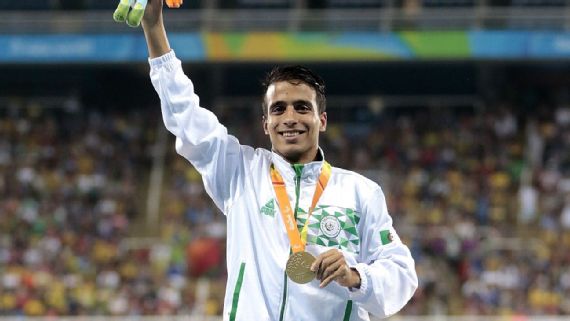Media Coverage
WEEK 5
Disability and Media
Media Coverage
Over the years, media coverage for the Paralympics has increased but isn't where it should be in comparison to the Olympics. In 2016 Paralympian runner Abdellatif Baka set the world record by beating US Olympic gold medalist Matthew Centrowitz for the 1500-meter race. Fewer than 100,000 Americans witnessed this moment, in comparison three weeks prior 14 million viewers were watching Matthew Centrowitz take the gold. Awareness of the Paralympics amount Americans is very far behind because of the limited resources. Experts say this has to do with the timing of the Paralympics. I think with all the commotion leading up to the Olympics that's all the media talks about. So, when it is over people don't think about what is next, they are just excited to have watched the Olympics. I believe to fix this issue they first need to start with the timing of the Paralympics. Instead of two weeks after the Olympics maybe the Paralympics can be two weeks before. This is so the media coverage can focus on the Paralympics for weeks prior and that news doesn't get lost within the Olympic coverage. It would also be a good trial run for venues hosting both of these events to see what can improve before the Olympics. I think the media needs to be more inclusive and provide equal coverage and awareness for both events. Media coverage can affect how these athletes with impairment and disabilities sports are perceived by the public. Historically media representing people with disabilities have been negative. These athletes have been portrayed as a medical issues that they had to overcome to be "normal".
Rio 2016 Paralympic Games, Abdellatif Baka
Issues in media
These negative portrayals in the media showcased stereotypes where individuals are represented as victims, less than human, or for those who can overcome their impairments and be successful, superheroes. Celebrating a Paralympian for overcoming a disability in order to play a sport devalues their athletic performance. Instead, people should be praising them for being high-performing athletes. This type of negative narrative sends out the message that anyone can overcome their disability if they try hard enough. This misrepresents the experiences of these athletes and people who live with disabilities every day. While watching the Superbowl a couple of weeks ago I noticed that there were a lot of commercials with people in wheelchairs and with less visible impairments. Media coverage has seemed to conform to what society thinks an athletic body should look like and as a result not represent the diversity of people with disabilities that compete in sports. I believe people should want to diversify the media in order to create a wider view of our society. Our society has many people and all who do not look the same. It is time for the media to create a platform for everyone, not just able-bodied people.

Comments
Post a Comment